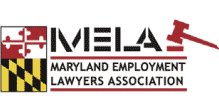Washington, DC Whistleblower Retaliation Lawyers
Washington, DC Federal Employment Attorneys for Whistleblower Retaliation
Whistleblowers play a critical role in ensuring that federal agencies operate with integrity and transparency. By reporting misconduct, fraud, waste, or abuse within their agencies, federal employees help maintain the public's trust. However, whistleblowers often face significant risks, including retaliation from their employers. Even though federal law provides protections for whistleblowers, employees may need legal help to address disciplinary action or other illegal forms of retaliation. At Freedman Law, LLC, our federal employment law attorneys can provide the legal help needed to address retaliation for blowing the whistle on wrongdoing.
Reasons Federal Employees Become Whistleblowers
Federal employees may choose to become whistleblowers for a variety of reasons, which typically involve exposing unethical or illegal activities within their agencies. Some common reasons for whistleblowing include:
- Reporting Fraud: Fraudulent activities within federal agencies can take many forms, including falsifying records, misappropriating funds, or engaging in deceptive practices to secure government contracts. When federal employees witness such activities, they may report the fraud to prevent further harm and ensure that taxpayer dollars are used appropriately.
- Exposing Waste: Wasteful spending or inefficient use of resources is another common reason for whistleblowing. Federal employees who observe unnecessary expenditures, mismanagement of funds, or inefficient operations may report these issues to help improve government efficiency and reduce waste.
- Addressing Abuse of Authority: Government officials may use their positions of power to engage in unethical or illegal activities, such as favoritism, discrimination, or harassment. Federal employees who witness these forms of abuse may choose to blow the whistle to hold these people or agencies accountable and protect the rights of other employees or the public.
- Highlighting Safety Violations: When federal agencies fail to follow the proper safety procedures, they may endanger the public or their employees. Whistleblowers may report unsafe practices, environmental hazards, or violations of health and safety regulations, and this can help prevent accidents, injuries, or long-term harm.
Protections for Whistleblowers Under Federal Law
Federal law offers strong protections to whistleblowers to ensure they can report misconduct without fear of retaliation. Employers are prohibited from retaliating against employees who disclose information about wrongdoing within federal agencies. The Whistleblower Protection Act provides protection to federal employees who disclose evidence of illegal acts, mismanagement of funds or personnel, abuse of authority, or issues that have affected public health or safety. Other laws also ensure that federal employees who report misconduct are protected whether disclosures are made internally, externally, or to the media, and even if the disclosure involves information that is not officially part of an employee's job duties.
Types of Retaliation Against Whistleblowers
Despite the legal protections in place, whistleblowers often face various unfair or illegal treatment from their employers. Retaliation can take many forms, including:
- Termination or Demotion: An employer may wrongfully terminate a whistleblower or demote them to a position with lower pay and reduced responsibilities in an attempt to silence them or punish them for their actions.
- Harassment: Whistleblowers may experience mistreatment in the workplace as a form of retaliation. This can include verbal abuse, intimidation, or other hostile behaviors that create a toxic work environment. Harassment can make it more difficult for a whistleblower to perform their job, while also affecting their overall health and well-being.
- Denial of Promotions or Benefits: Retaliation can also manifest in more subtle ways, such as the denial of promotions or raises or refusal to provide benefits that the whistleblower would otherwise be entitled to. This type of retaliation can be difficult to prove, but it can have a significant impact on the whistleblower's career and their financial stability.
- Unfavorable Reassignments: Employers may attempt to retaliate against whistleblowers by reassigning them to less desirable positions or locations. These reassignments can be a form of punishment that can disrupt the whistleblower's career progression and affect their personal life.
Contact Our Washington, DC Federal Whistleblower Retaliation Attorneys
If you are a federal employee who has experienced retaliation for whistleblowing, Freedman Law, LLC can help you protect your rights and hold your employer accountable for their illegal actions. Our lawyers can advise you on the best course of action, help you file complaints with the appropriate agencies, and provide representation during investigations and hearings. To learn how we can help you protect your job and address the harm you have suffered because of whistleblower retaliation, contact us at 410-290-6232.













